Oceans
-
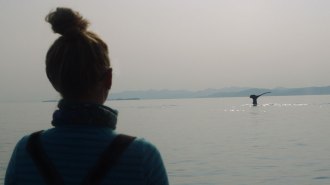 Animals
Animals‘Fathom’ seeks to unravel humpback whales’ soulful songs
The film ‘Fathom’ on Apple TV+ follows the quest of researchers on the ocean’s surface to decipher the eerie symphony of humpback whale calls below.
By Jake Buehler -
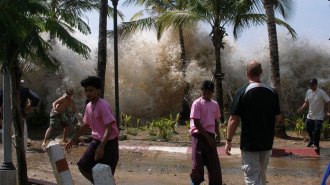 Earth
EarthA new book uses stories from tsunami survivors to decode deadly waves
In ‘Tsunami: The World’s Greatest Waves,’ two scientists chronical hundreds of eyewitness accounts to show the human cost of life at the water’s edge.
By Sid Perkins -
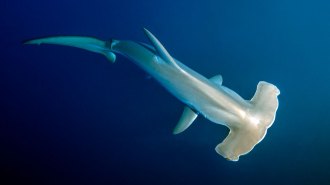 Paleontology
PaleontologySomething mysteriously wiped out about 90 percent of sharks 19 million years ago
Deep sediments beneath the Pacific Ocean revealed a mystery: a massive shark die-off with no obvious cause.
-
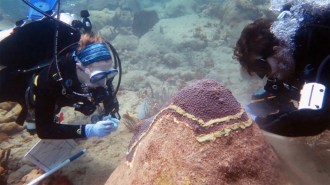 Animals
AnimalsA common antibiotic slows a mysterious coral disease
Applying the antibiotic amoxicillin to infected lesions halted tissue death in corals for at least 11 months after treatment.
-
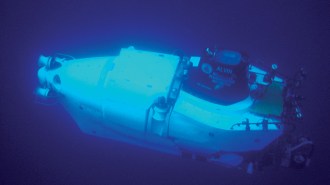 Science & Society
Science & SocietyA new book explores how military funding shaped the science of oceanography
In ‘Science on a Mission,’ science historian Naomi Oreskes argues that funding from the U.S. Navy both facilitated and stymied marine research.
-
 Oceans
OceansCorals’ hidden genetic diversity corresponds to distinct lifestyles
Observation and DNA analysis expose identical reef corals as distinct species with unique ecologies, suggesting much greater coral biodiversity.
-
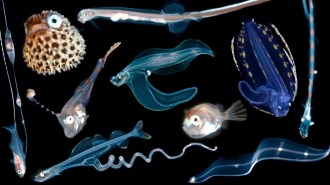 Animals
AnimalsDazzling underwater photos capture new views and scientific detail of fish larvae
Lab specimens of fish larvae are often mangled and bleached. Divers and researchers have partnered to study their rich colors and intricate bodies.
-
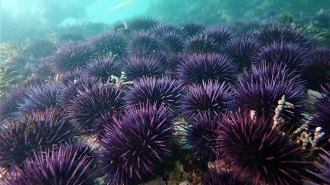 Ecosystems
EcosystemsHow kelp forests off California are responding to an urchin takeover
A pair of studies reports 95 percent loss of kelp forests along the northern coast while sea otters are helping maintain surviving kelp farther south.
-
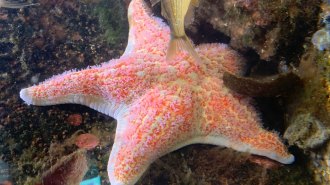 Animals
AnimalsSome bacteria are suffocating sea stars, turning the animals to goo
For years, researchers thought an infectious pathogen was behind sea star wasting disease. Instead, bacteria deplete the starfishes’ oxygen.
-
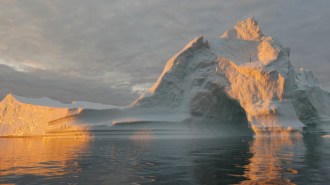 Earth
EarthEarth’s oceans are storing record-breaking amounts of heat
2020 was just the latest in a series of record-breaking years for ocean heat.
-
 Climate
ClimateOcean acidification may make some species glow brighter
Ocean organisms use bioluminescence for hunting, defense and more. A new analysis shows that declines in water pH might change who glows and how much.
-
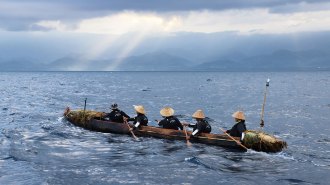 Humans
HumansAncient humans may have deliberately voyaged to Japan’s Ryukyu Islands
Satellite-tracked buoys suggest that long ago, a remote Japanese archipelago was reached by explorers on purpose, not accidentally.